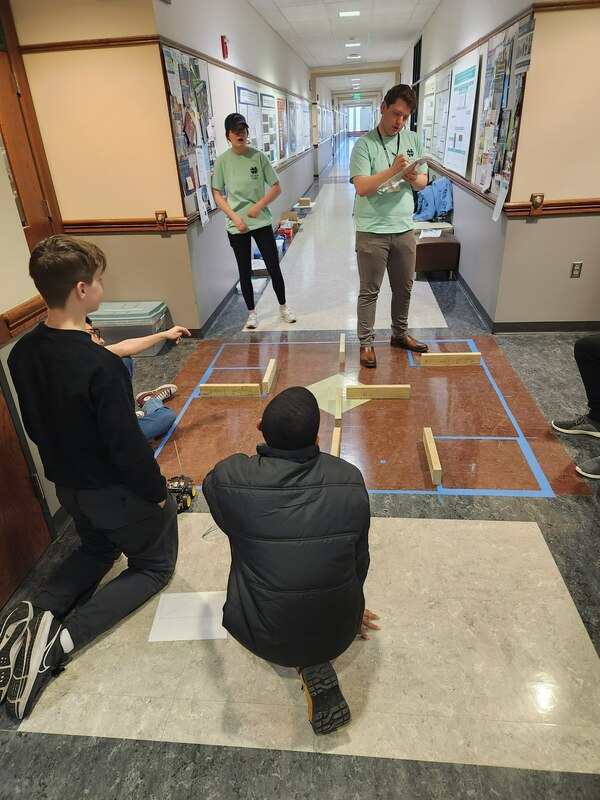High school students, coaches, and volunteers filled the labs and classrooms in Jordan Hall of Science with competition in January during the third annual “Fighting Irish Science Olympiad.”

Fourteen schools traveled to campus to compete in a series of different science-themed events. Each year, “a portion of the events are rotated to reflect the ever-changing nature of genetics, earth science, chemistry, anatomy, physics, geology, mechanical engineering and technology,” according to Science Olympiad Inc. The nationwide organization has been providing science competitions to high school and middle school students since 1984.
60 Notre Dame undergraduates and their professors have been working on preparing for the event since September, and staffed the event itself.
Co-presidents Nikhil Vijai and Matthew Kerosky have been involved in the months-long process to prepare for and produce a successful competition. Both third-year biochemistry majors, Vijai and Kerosky are glad to have the opportunity to give back to an organization that means a lot to them.
“I have always participated in Science Olympiad — beyond that, when we were running it, seeing the fact that people are able to gain the valuable experience we both had when we were in high school was rewarding to see. That is really why I wanted to be involved,” said Kerosky.
The Fighting Irish Science Olympiad Invitational was founded by passionate students and faculty in 2021, and provides an opportunity for Notre Dame science students to give back to younger competitors.
Nearly 300 students from the surrounding regional areas competed this year. There were 18 written tests and five “build” events. These build events included creating glider planes, developing robotics obstacle courses, and engineering strong towers and bridges.
In addition to a mostly student-run volunteer team, the competition would not have been possible without the help of dedicated professors, like Susan Del Valle, assistant teaching professor in the Department of Chemistry and Biochemistry, who has piloted the Fighting Irish Science Olympiad since its inception.
“She is with us from day one . . . it couldn't have been possible without Professor Del Valle. It’s really clear she has the best interests at heart for the tournament currently and for the future,” Vijai said. “We also want to thank Seth Brown and Marya Lieberman for helping us prepare labs and exams for chemistry and forensics, and Dr. Doug Miller, who helped us prepare some solutions for the detector-building event.”
One member of the Fighting Irish Science Olympiad club gives credit to the team for shaping his college trajectory. Abbass Mourtada is a first-year student from Baalbek, Lebanon, who competed at the FISO competition while on an exchange program in the United States during high school. Mourtada is physics and honors mathematics double-major.
“The Fighting Irish Science Olympiad invite was pivotal to my life,” said Mourtada. “I learned about the University of Notre Dame through the first FISO event ever held. The fact that I am here now tells enough of the importance of this event. To be able to run such an event, too, is a different kind of gratitude and privilege we College of Science students get.”
Students from John Adams High School in South Bend have been coming to the FISO since its first year. Science teacher and coach Dru Wrasse credits the organization for inspiring her students to pursue science.
“The students were excited all day long to be doing science from forensics to testing balsa towers and twenty-one other events across science disciplines,” Wrasse said. “The tests were just what we needed in depth and breadth of subject area.”
Besides the competition itself, this year's closing ceremonies featured Notre Dame postdoctoral researchers, some of whom gave “lightning talks” to the students about their professional research experience at Notre Dame.
“The kids loved it. To see what science looks like in the real world is really cool for the students, they were so engaged,” Vijai said.
Wrasse said the students look forward to Notre Dame’s event each year.
“It’s the invitational the students are most excited about,” she said.